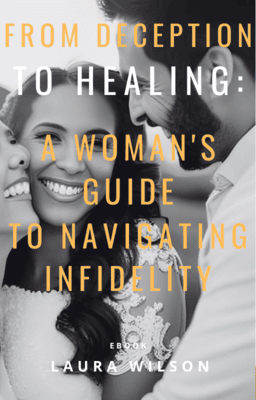What are the dynamics of cheating? Lets look at this in detail throughout this blog post. Cheating, stepping out, two-timing – whatever you want to call it, infidelity is a common issue that has been around since the dawn of intimate relationships. But what really goes on behind those closed doors and hushed whispers? Well, as your friendly neighborhood detectives at Low Cost Detectives (we’re like Sherlock Holmes but with cheaper rates), we’ve seen our fair share of sneaky tactics and have managed to decode some personality traits commonly linked with infidelity. It’s not always about the lipstick on the collar or late-night ‘work’ calls; sometimes it’s more subtle than that.
Decoding Infidelity: The Hidden Truth
Now let me tell you about this one case: A seemingly perfect couple came in for advice because they felt something was off in their marital bliss. The husband had recently picked up yoga (which he previously claimed was “just fancy stretching”) and started using words like “Namaste” at breakfast. Alarm bells anyone? Turns out he wasn’t just bending his body; he was also bending his wedding vows! This situation underlines how important communication skills are when dealing with such issues and discussing the dynamics of cheating.
Understanding the Intricacies of Infidelity: Why People Cheat and How to Spot the Signs
The dynamics of cheating can be complex and often stem from underlying problems within the relationship itself – dissatisfaction, unmet needs or power imbalances can all play a part. Understanding these dynamics of infidelity isn’t an excuse for cheaters but may help us understand why people cheat in the first place. So next time your partner suddenly picks up a new hobby or starts speaking a different language over breakfast cereal remember- trust your gut feeling. And if things start getting fishy don’t hesitate to give us a call here at Low Cost Detectives- we promise we won’t judge…much.
Get in touch with our Expert Detectives
The Cheater's Code: Decoding the Personality Traits of Cheating in Relationships
When it comes to decoding the personality traits of cheaters, there’s a lot more than meets the eye. It’s like trying to solve a Rubik’s cube or juggling flaming torches in the dark, challenging but possible. Narcissism often plays a starring role in this sordid drama and the dynamics of cheating. Picture someone so enamored with their reflection that they can’t see past it to consider how their actions might hurt others. That’s your quintessential narcissistic cheater for you. Their unfaithfulness becomes just another notch on their belt – proof of their irresistible charm and cunning.
Relationship Science: Deciphering the Complex Dynamics Behind Infidelity
Now let’s delve a little into relationship science, which is not as sci-fi as it sounds – no lab coats or beakers involved here. By applying relationship science to psychotherapy practice, we can start peeling back layers of complexity around cheating in relationships. Think about power dynamics; they’re like an electric current running through any intimate union—sometimes charging things up and at other times causing shockwaves (pun intended). When these dynamics are imbalanced or misused, we find ourselves knee-deep in the mucky swamp known as infidelity.
Infidelity Decoded: Navigating the Complex Maze of Relationship Dynamics
So where does infidelity fit into all this? Well, think of infidelity as a manifestation – kind of like those pesky pimples that show up when you’ve been stressing over solving your Rubik’s cube or ( juggling those flames). The dynamics of cheating are complex and messy. But by understanding how intimate relationships work or rather should work we get closer to figuring out why some people decide straying is better than staying put. And trust us when we say: cracking ‘The Cheater’s Code’ isn’t easy… but then again neither is juggling flaming torches!
Suspicions Keeping You Up at Night? Uncover the Truth Behind Your Partner's Actions

The Science of Love: Applying Relationship Science to Intimate Relationships
Relationships are complicated, aren’t they? One minute you’re sharing a tub of ice-cream on the couch, and the next, you’re hiring us at Low Cost Detectives to address infidelity issues. It’s like trying to assemble IKEA furniture without instructions – confusing and full of unexpected twists! The dynamics of relationships and the dynamics of cheating can be as complex as that ‘Fjällbo’ shelf you’ve been avoiding in your garage. But don’t worry; we’ve got some tools for you too.
Evolutionary Psychology: Tracing the Ancient Roots of Modern Love and Infidelity
There’s this thing that’s called evolutionary psychology, it examines the crucial elements surrounding infidelity. Think about it like watching one of those nature documentaries but instead of lions hunting gazelles, it’s humans navigating the wild world of love and heartbreak. This branch of psychology studies how our caveman instincts might still influence modern romance – from mate selection to the dynamics of cheating in relationships. So if your partner suddenly starts grunting or dragging their knuckles on the ground…well, maybe there’s a bit more going on than just a weird phase.
Rebuilding Trust Post-Affair: Complex Pathways to Relationship Recovery
But alas fear not! There are ways to rebuild trust after an affair has rocked your relationship boat. Just like putting together that flat-pack bookshelf, it takes patience, clear instructions (communication), and probably a lot more screws (effort) than initially anticipated. Psychotherapy approaches can help navigate through unfaithfulness and understand better what I call “the impulses behind sneaky peeks”. Because while we all may have inherited some traits from our cave-dwelling ancestors, last time I checked, clubs were out-of-fashion in resolving conflicts.
Are you interested in learning about all things Honey Trap?
The Double Life: Understanding the Dynamics of Infidelity
So, let’s get this straight as we look further into the dynamics of cheating. You know how in those old mystery novels, there’s always that one character leading a double life? Well, according to Lawrence Josephs, a professor of psychology in New York City and a real-life detective of the mind, it’s not just in fiction where this happens. He argues for a new understanding of the psychological foundations which lead to infidelity, he examines personality traits such as narcissism and low empathy and together with a variety of approaches he endeavors to uncover the complexities of infidelity.
Sherlock's Guide to Infidelity: Unmasking the Two-Faced Lover
Now just imagine you are Sherlock Holmes investigating your partner who may be living two lives – one with you and another with someone else. The impact of infidelity can feel like being hit by an emotional truck (or maybe even an actual truck). Professor Josephs is here to explain why people cheat and what goes on inside their heads when they do so. After all, as he says: “Understanding is half the battle.”
Beyond Betrayal: Healing Insights from Expert Josephs
In his work, Josephs also delves into the aftermath of infidelity – which can often resemble a battlefield more than anything else. His research provides insights into how couples navigate these choppy waters after discovering unfaithfulness within their relationship. So while we might not have super sleuth skills or nifty gadgets at our disposal like Holmes did; armed with knowledge from experts such as Josephs, we too can understand better and hopefully find ways to heal after experiencing betrayal.

Speak Up: The Role of Communication Skills in Marital Issues
Let’s be honest, navigating the digital landscape of a relationship can sometimes feel like trying to find your way through a maze blindfolded. You’re constantly bombarded with new apps and social media platforms where one partner may or may not be sliding into someone else’s DMs. But here’s something you might not have considered: cheating isn’t always about the thrill of secret messages or clandestine meetings.
Now don’t get me wrong, we at Low Cost Detectives aren’t saying that infidelity is ever okay – far from it! What we are suggesting is that it’s often a manifestation of broader underlying problems in the relationship. Kinda like when you ignore that check engine light on your car dashboard for too long and suddenly you’re stranded on the highway with smoke billowing out from under your hood…except this time, there’s no roadside assistance to call.
Chess or Bingo? Navigating Mismatched Relationship Expectations
These broader underlying problems and rarely offer insights or interventions to specifically address unfaithfulness can range from poor communication skills to mismatched expectations within the relationship. It’s almost as if some couples think they’re playing chess while others are set up for bingo – different games, very different rules! So next time before jumping straight into Sherlock Holmes mode when suspicion arises, take a moment instead to consider what other issues could be lurking beneath those murky waters of doubt and mistrust. After all, understanding the dynamics of cheating can go a long way towards repairing trust and rebuilding relationships.
Do you have Doubts Or Want To test Your Partners Loyalty?
The Self-Centered Lover: Narcissism and Infidelity
Let’s dive deep into the ocean of narcissism and infidelity. Ever wondered why some people cheat? Well, it’s not always a simple answer, but personality traits such as narcissism can play a significant role. You see, our friend Narcissus wasn’t just fond of his own reflection; he was also notorious for having low empathy – not exactly ideal boyfriend material. This lack of understanding or concern for others’ feelings often leads to unfaithfulness. It’s like they’re at an all-you-can-eat buffet while their partner is stuck with stale bread at home.
From Teddy Bears to Trust Issues: The Role of Attachment in Relationships
Now let’s add another layer to this puzzle – attachment theory. Our team here at Low Cost Detectives has been digging around in the relationship dirt and found something interesting: the crucial roles of attachment theory in these dynamics of infidelity applying relationship science. Think about your first teddy bear or that ratty old blanket you couldn’t sleep without (don’t worry, we won’t tell anyone). These early attachments shape how we connect with others later in life. If those connections were unstable or inconsistent (like when Teddy got left behind on vacation), it might lead to issues in adult relationships—kinda like forgetting your anniversary three years running.
Beyond Betrayal: Therapeutic Insights into the World of Infidelity
So what does this mean for couples therapists seeking insights on how to address unfaithfulness? Well, understanding the impulses driving someone towards infidelity is key—it’s kind of like knowing where Waldo is before opening the book. By recognizing patterns linked with narcissism and low empathy, therapists can better navigate through these turbulent waters towards calmer shores…or at least suggest investing in a good-quality raft! So keep paddling folks because remember – love may be a battlefield but you’ve got Low Cost Detectives by your side providing insights into this complex world called ‘relationships’.
From Narcissistic Tendencies to Early Attachments: The Roots of Infidelity
To summarize, here are some bullet points to keep in mind:
• Narcissism is a personality trait that can often lead to infidelity. This is because narcissists have low empathy and care more about their own needs than the feelings of others.
• Attachment theory plays a crucial role in relationship dynamics, including infidelity. Our early attachments shape how we connect with others later in life and if these connections were unstable or inconsistent it might lead to issues in adult relationships.
• For couples therapists dealing with unfaithfulness, understanding the impulses driving someone towards infidelity is key. By recognizing patterns linked with narcissism and low empathy, they can better navigate through these turbulent waters.
The Low Cost Detectives team provides insights into this complex world called ‘relationships’, helping you understand why people cheat and how you can work on preventing or dealing with such situations.
Remember folks – love may be a battlefield but you’ve got our support. Stay strong, stay aware and remember: knowledge is power when it comes to navigating the choppy seas of relationships.

The Achilles Heel: Addressing Unfaithfulness in Relationships
In the wild world of relationships, infidelity is often seen as the ultimate Achilles heel. It’s like stepping on a Lego in the middle of night – unexpected, painful and leaves you questioning your life choices. Many therapists know this all too well. They’ve seen clients who experience infidelity within their committed relationship, turning their love story into something more akin to a daytime soap opera.
Now, there are different types of infidelity: emotional, physical or even digital (yes, sliding into someone else’s DMs when you’re hitched counts too). The relationship dynamics shift drastically after such incidents and it can feel like trying to navigate through a maze blindfolded while riding a unicycle…uphill! Yet uses interventions that employ a variety of approaches can help couples find their way back to each other or at least make sense out of what happened within the relationship.
Streaming Love: When 'Netflix and Chill' Turns to 'Prime and Problems
One day you’re enjoying Netflix and chill with your significant other; next thing you know they’ve found another partner for ‘Prime Video and commitment’. But hey, Don’t lose heart just yet; it’s not always doom gloom in these situations. With time, effort and understanding from both parties involved, trust can be rebuilt within the relationship again. And remember – every couple has its own unique journey so don’t compare yours with anyone else’s unless they’re fictional characters…then by all means go ahead.
Power Play: The Impact of Power Dynamics on Cheating
Relationship dissatisfaction can often be the catalyst for a game of power play. When one partner feels unheard or unappreciated, they might think that engaging in infidelity is their only ticket to feeling valued again. It’s like trying to win a game of chess with checkers pieces – it just doesn’t work! And let me tell you, as detectives we’ve seen everything from secret rendezvous at dingy motels to coded messages in crossword puzzles; people cheat in relationships more creatively than a raccoon raiding your garbage bin.
When Love's Balance Tips: The Underlying Causes of Infidelity
Infidelity happens when there’s an imbalance in the relationship as well. Picture this: You have two partners, one who holds all the cards and another who barely knows how to shuffle them. The latter may feel compelled into sexual infidelity just for a taste of control, even if it means risking what they already have on hand. As someone once told us during an emotion focused therapy session (yes, detectives sometimes moonlight as therapists), “It was never about the sex; I wanted my cheating partner to know what it felt like being powerless.”
Beyond Poker Nights: The Real Stakes of Infidelity
Now here comes our favorite part – addressing why relationships may end up playing host to these power dynamics leading to infidelity often. A lot is said about communication and trust but let’s not forget good old respect – something we believe holds equal weightage if not more. It reminds me of this case where our client had suspicions about her husband’s late-night ‘poker games’. Turns out he wasn’t bluffing about poker nights but was indeed dealing some under-the-table actions with his ex-girlfriend. So remember, next time you’re tempted towards indiscretion due to lack of attention or appreciation at home– try talking first because nothing beats open dialogue…and also saves you from having us snoop around your life.

The Path to Healing: Rebuilding Trust after Infidelity
Healing from infidelity is like that time you tried to assemble the IKEA furniture without instructions – frustrating, confusing and full of moments where you are ready to throw in the towel. But just as one relationship doesn’t define all relationships, a single incident of cheating doesn’t have to be the end of your love story. It’s not easy, but with some elbow grease (and maybe a few swear words), it can be done.
Open Dialogue: The Secret Sauce of Strong Relationships
Now let’s talk about open communication because it’s important – think ‘the secret ingredient’ in grandma’s famous recipe is important. An honest conversation can help both partners understand the dynamics within their relationship better than any detective agency could. You might discover that what seemed like an insurmountable problem was actually something more manageable once brought into daylight. And hey, if we’ve learned anything from our favorite sitcoms, it’s that even Ross and Rachel managed to work things out after his infamous “we were on a break” debacle.
From Toxicity to Trust: Rebuilding After Betrayal
But remember: healing also involves preventing future infidelity. We know – easier said than done right? Like trying to convince your cat not to knock over your favorite vase again. One common reason for straying is feeling unfulfilled or unhappy in a relationship type known as toxic relationships – no fun at all. By understanding this concept of cheating and working towards creating healthier dynamics within relationships, couples can make strides towards rebuilding trust…and keeping those vases safe too. So while there might not be an IKEA manual for mending broken hearts yet, there certainly are ways forward if both parties are willing and committed.

A Woman's Essential Guide to Navigating Infidelity - eBook
Empower Yourself with Knowledge 💔➡️❤️
Suspect infidelity? Explore the world of relationships and uncover the signs of a cheating partner. Equip yourself with the tools to navigate the complex emotions of betrayal.
Grab your copy today and embark on your journey to healing.
Get Your eBook Here
Infidelity Unplugged: Insights from Psychotherapy Approaches
Picture this! You’re sitting in your favorite armchair, sipping on a cup of hot cocoa and flipping through the pages of a groundbreaking book. Suddenly, you stumble upon an enlightening chapter about infidelity. It talks about how it can take many forms – from physical intimacy with someone other than your partner to emotional connection behind a screen. The concept is mind-boggling, isn’t it?
Now here’s another factor to consider – power or control. Yeah, you heard that right. Some people cheat not out of dissatisfaction or lack of love for their romantic partner but simply because they enjoy the thrill and sense of power they get from being able to juggle multiple relationships at once. Kinda like spinning plates at the circus while riding a unicycle…except less fun and more hurtful.
Superheroes of the Heart: How Psychotherapy Approaches Infidelity
Psychotherapy approaches come into play as our friendly neighborhood Spiderman (or woman) swings in to save the day by providing a safe space for couples dealing with infidelity issues. They don’t just swoop in wearing capes; instead, they help navigate these murky waters using empathy and understanding as their superpowers. Healing after infidelity requires effort from both partners – think of it like trying to assemble IKEA furniture without instructions: frustratingly difficult but incredibly satisfying when done right…or so I’ve heard anyway.
The Dynamics of Cheating - Useful Links & Resources
Looking for a supportive community and resources on infidelity? Check out this comprehensive forum dedicated to helping individuals navigate the aftermath of betrayal.
Seeking guidance and tools for healing after an affair? Check out this platform that offers expert advice and support for those affected by infidelity.
Seeking guidance on building a stronger marital foundation? Explore MarriageBuilders for expert advice and resources.
The Dynamics of Cheating FAQ'S
What is the hidden truth behind infidelity?
The hidden truth behind infidelity is that it often stems from unresolved issues, unfulfilled needs, or dissatisfaction within a relationship. It’s not as simple as just a lack of self-control or moral judgment. Infidelity can be a symptom of deeper relationship problems.
Can the personality traits of a person determine if they will cheat?
Yes, certain personality traits like impulsivity, selfishness, and a lack of empathy can contribute to a person’s likelihood of cheating. However, it’s important to remember that not everyone with these traits will cheat, and not all cheaters share these traits.
How can relationship science be applied to intimate relationships?
Relationship science provides valuable insights into how to maintain healthy and satisfying relationships. It emphasizes the importance of communication, trust, and mutual respect, which can help prevent infidelity and promote a stronger connection between partners.
What are the dynamics of infidelity?
The dynamics of infidelity involve secrecy, betrayal, and often, a double life. The person cheating may struggle with guilt and fear of discovery, while the other party may experience a deep sense of betrayal and trust issues if the infidelity comes to light.
How important are communication skills in dealing with marital issues?
Communication skills are absolutely crucial in dealing with marital issues. Open and honest dialogue can help to address and resolve conflicts, express needs and feelings, and maintain a strong, healthy relationship.
Can Narcissism lead to infidelity?
Yes, narcissism can indeed lead to infidelity. Narcissists often prioritize their own needs and desires above others, which can lead them to cheat without considering the impact on their partner.
How can unfaithfulness in relationships be addressed?
Unfaithfulness can be addressed through open and honest communication, couples therapy, or individual counseling. It’s important to understand the root causes of infidelity, rebuild trust, and work towards healing the relationship.
What is the impact of power dynamics on cheating?
Power dynamics can have a significant impact on cheating. Those who feel powerful may be more likely to cheat as they may feel less accountable for their actions or believe they can get away with it. Likewise, those who feel powerless may cheat in an attempt to regain some sense of control or self-worth.
How can trust be rebuilt after infidelity?
Rebuilding trust after infidelity is a process that takes time, patience, and commitment. It involves acknowledging the pain caused, displaying genuine remorse, and making amends. Couples therapy can be a beneficial strategy in this process.
What insights does psychotherapy provide about infidelity?
Psychotherapy offers valuable insights into the underlying issues that lead to infidelity. It can help individuals and couples understand their motivations, improve their communication skills, tackle personal issues that may contribute to cheating, and ultimately, work towards rebuilding trust and healing the relationship.









